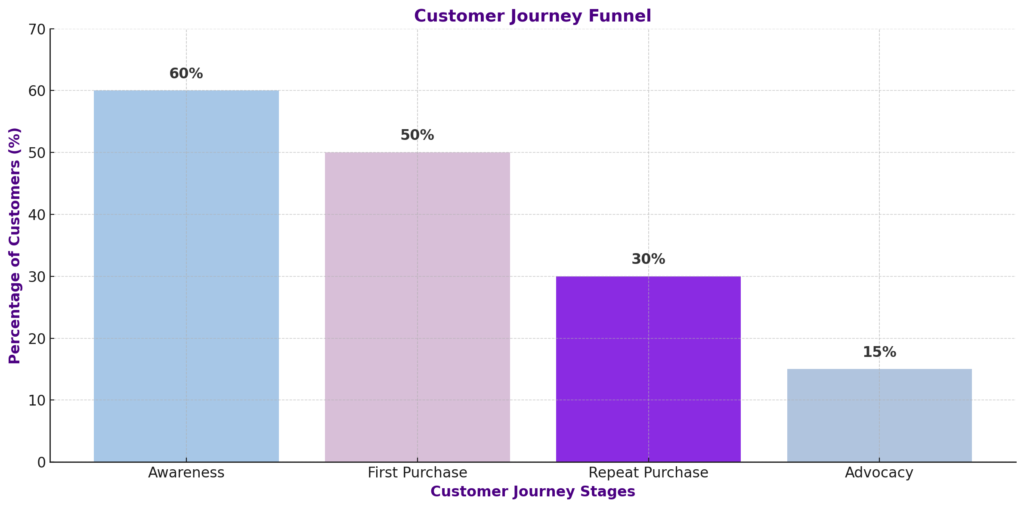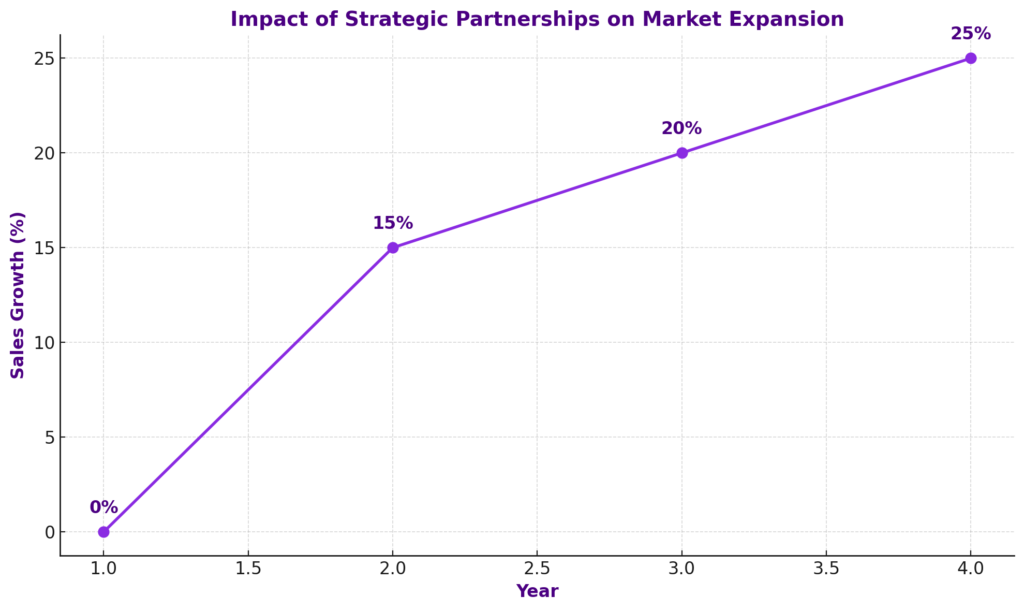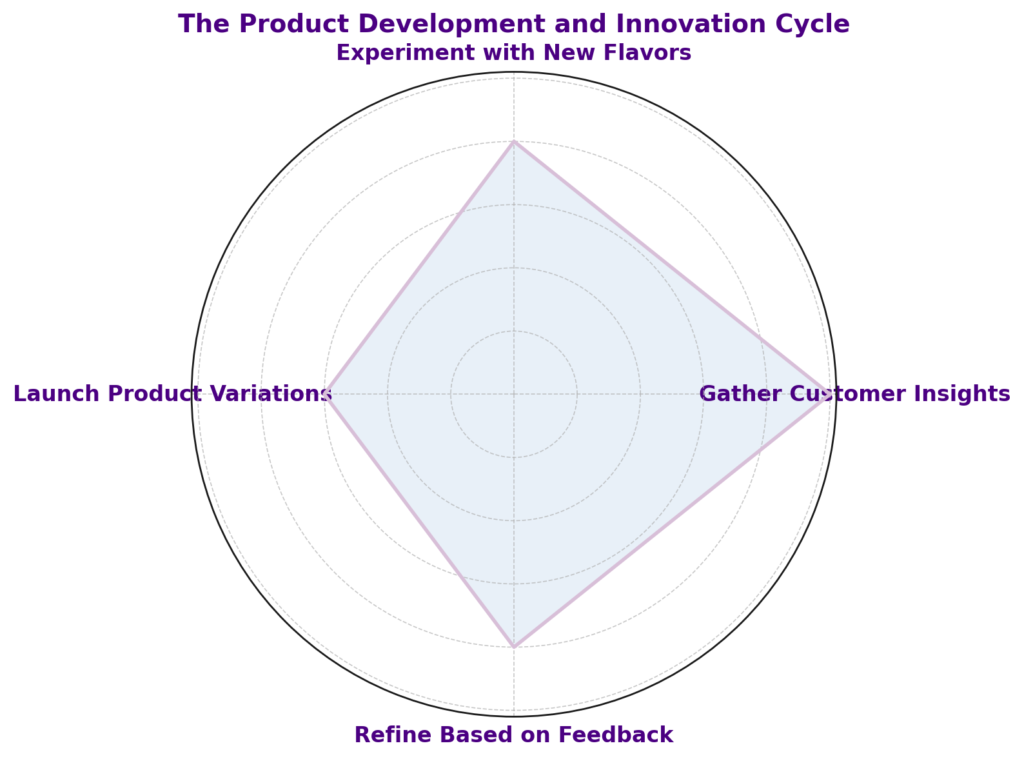How the Business Started
A Journey Fueled by Passion and Resilience.
Hassan’s journey into the world of food entrepreneurship began from a deeply personal place: cooking as a therapeutic outlet. Long before Damn Good Food was conceived, cooking was Hassan’s sanctuary, a way to unwind and find peace amidst the chaos of daily life.
This passion for food was not just about nourishment, but an experience that allowed him to connect with himself. It was within this context of food as therapy that the seed for Damn Good Food was sown.
After years of experimenting with recipes and refining his culinary skills, Hassan realized that his passion could transcend personal enjoyment. He began to see a gap in the food industry: many people were eager to embrace healthier eating habits, but they often found healthy options either inaccessible or not exciting enough.
Hassan saw an opportunity to blend his love for cooking with his desire to create something impactful. He envisioned a food business that would offer clean, healthy, and flavorful meals, something that wasn’t just about food, but about fostering a lifestyle, one rooted in the therapeutic experience of eating well.
In 2017, armed with this concept, Hassan took the bold step of turning his personal passion into a business. He started small, cooking out of his own kitchen, testing recipes, and gradually sharing them with friends and family. The positive feedback he received validated his idea and propelled him to take the next step, creating a formal brand that would bring his therapeutic cooking philosophy to a broader audience.
However, the early days weren’t without challenges. Like most entrepreneurs, Hassan faced resource limitations. With minimal investment, he relied heavily on word-of-mouth marketing and personal connections to spread the word. He crafted each meal with the same attention to detail he had applied to his personal cooking experiences. Each dish was made not just to taste good but to resonate with people looking for healthy, high-quality food options.
The key turning point for the brand came when Hassan decided to bring the concept of cooking as therapy to the forefront of his business. It was this unique approach that distinguished Damn Good Food from competitors. By focusing on the emotional connection people have with food, Hassan created a brand that didn’t just sell meals, it sold a lifestyle centered on health, mindfulness, and well-being.
In the beginning, Hassan worked solo, managing everything from cooking to customer engagement. However, as demand grew, he realized the importance of expanding his team. He recruited people who shared his passion and vision, creating a close-knit group committed to the brand’s mission. Despite limited resources, Hassan’s emphasis on quality and his belief in community-driven marketing helped Damn Good Food gain its initial traction.
By 2018, the brand had grown beyond his kitchen. Hassan’s ability to build a network of suppliers and create transparent partnerships with local farms played a crucial role in ensuring the freshness and sustainability of the ingredients used in his meals. His focus on sourcing responsibly not only enhanced the quality of the product but also aligned with the values he wanted the brand to represent ethically sourced, quality-driven, and community-focused food.
What started as a personal outlet for Hassan soon became a business that aligned with his values. Damn Good Food was born not just out of a passion for cooking, but from a desire to connect with people in a meaningful way through the food they consumed. By providing more than just healthy meals, Hassan built a community of customers who shared his belief that food can be both therapeutic and transformative.
From Challenges to Breakthroughs
"In the middle of difficulty lies opportunity." – Albert Einstein
Every entrepreneurial journey is marked by obstacles, and for Hassan Waqar of Damn Good Foods, these hurdles were no different. With limited resources, growing demands, and an ever-changing market, Hassan found himself facing significant challenges at every turn.
However, it was his resilience and the unwavering support from his network, particularly his family, that enabled him to turn these difficulties into stepping stones for success.
Here’s a deeper look at the major challenges he encountered and how he overcame them.
1- Scaling Without Losing the Personal Touch
As demand for Damn Good Foods grew, maintaining the level of quality that set the brand apart became a crucial challenge. For a food business where consistency is key, scaling production without sacrificing quality was a concern.
Hassan’s journey of scaling the business was met with the dilemma of whether to compromise on the personal touch that customers loved.
He faced the challenge of balancing between increasing production to meet demand and ensuring each product maintained the same high standards. Hassan understood the importance of consistency in delivering a quality product and knew that deviating from this would risk the brand’s reputation.
To address this, he implemented a more structured production process and worked closely with a few trusted team members.
This helped preserve the quality while expanding. Over time, his commitment to quality became a core element that customers valued, thus keeping the personal touch intact even as the business scaled.
2- Logistical Hurdles and Delivery Challenges
As Damn Good Foods expanded its reach, particularly in terms of delivery services, the company faced logistical hurdles, especially in ensuring the freshness and quality of its food products.
Delivering perishable goods without compromising freshness over long distances required careful thought and strategic planning.
Hassan found himself grappling with the complexities of packaging and delivery that would preserve the integrity of the food while reaching customers across different areas.
With packaging being a major point of concern, Hassan was forced to innovate in the way products were packaged and delivered. Through trial and error, he eventually optimized the packaging system, ensuring that food remained fresh and intact during transit.
This logistical challenge also brought the opportunity for process optimization, helping Hassan build a stronger and more reliable supply chain.
3- Financial Constraints and Managing Cash Flow
Like many entrepreneurs, Hassan’s early days with Damn Good Foods were marked by financial constraints. Starting with minimal capital, he had to ensure that every rupee was spent wisely.
Limited funds and the pressure of running a growing business left Hassan constantly juggling financial decisions.
Hassan’s ability to operate within these constraints was fueled by his resourcefulness. He leveraged family support and utilized his network to keep costs down while simultaneously focusing on maintaining product quality.
Over time, as the business grew and gained traction, he was able to reinvest earnings into the business, strengthening his foundation.
At a time when access to formal funding was limited, Hassan had to rely on his ability to make the most of the resources available to him, stretching each investment to its maximum potential.
4- Emotional Resilience and Overcoming Self-Doubt
The emotional toll of entrepreneurship cannot be underestimated, and for Hassan, self-doubt and uncertainty were recurring challenges that tested his resolve.
Building a business from the ground up often means facing moments of doubt, questioning whether the business will succeed or whether the sacrifices made are worth it.
Despite these emotional setbacks, Hassan found strength in his belief in the product and the support from his family. His wife, in particular, was a constant source of encouragement, helping him stay grounded when things got tough.
Her belief in the vision of Damn Good Foods was a reminder of why they started in the first place: a passion for creating high-quality, delicious food.
Hassan credits his emotional resilience and support from loved ones as key factors in helping him push through difficult times. This emotional support helped him stay focused on his long-term goals, even when the road seemed uncertain.
How the Business Was Scaled
Building Trust, Expanding Reach, and Leveraging Networks
Scaling a business is no small feat, especially when it’s built on a foundation of quality, customer trust, and tight-knit community relationships.
For Hassan Waqar, Damn Good Foods grew not just through incremental production but through a strategic focus on building lasting connections, both within and outside of his immediate network.
The ability to leverage his relationships and his customer base was central to the brand’s evolution from a small kitchen venture to a respected name in Lahore’s competitive food industry.
1- Building Customer Loyalty Through Personalized Touches
Hassan recognized early on that attracting customers wasn’t enough! Building loyalty was the key to long-term growth.
The concept of delivering exceptional products was only part of the equation. To make Damn Good Foods stand out in a crowded marketplace, Hassan focused on building genuine relationships with his customers.
One of the ways Hassan cultivated customer loyalty was by including thoughtful, personalized gestures with every order. This approach was particularly crucial for a food brand like Damn Good Foods, where customer relationships are built on trust and consistency.
Hassan made sure that the brand’s commitment to quality was reflected not just in the products but also in the customer experience.
By connecting personally with his customers and offering a premium, memorable experience, Hassan turned one-time buyers into repeat customers and created an organic buzz around his brand.
This built a community of loyal customers who spread the word through word-of-mouth referrals, a powerful tool that helped scale the business.
Stage 1 – Awareness: 60% of customers discover the brand through social media and word of mouth.
Stage 2 – First Purchase: 50% of first-time buyers return for another purchase within 30 days.
Stage 3 – Repeat Purchase: 30% of first-time buyers turn into repeat customers.
Stage 4 – Advocacy: 15% of loyal customers advocate for the brand on social media or via word-of-mouth referrals.

2- Trusting the Process and Embracing Strategic Patience
For Hassan, scaling wasn’t about rushing into the next big opportunity, it was about knowing when to move and when to wait.
Early on, he took the time to refine his product, optimize his operations, and ensure his supply chain could support future growth before expanding too quickly.
This strategic patience proved critical when Hassan was approached with a partnership opportunity with local retailers and online food platforms.
By taking the time to perfect the product and maintain high quality, Hassan positioned Damn Good Foods for the right moment to scale without compromising on its core values.
This careful, methodical approach to scaling meant that Hassan wasn’t overwhelmed by the rush to expand. Instead, he capitalized on the right opportunities when they presented themselves, making sure his operations were ready to support them. Hassan’s focus on building the brand gradually, perfecting the recipe, packaging, and delivery processes, ensured that expansion didn’t come at the cost of what made the business stand out: its dedication to great food and customer satisfaction.
3- Expanding the Brand’s Reach Through Strategic Collaborations and Partnerships
In a fast-paced food industry, where competition is fierce and trends change quickly, Hassan understood the importance of creating visibility for Damn Good Foods.
He knew that building a recognizable brand required going beyond the initial customer base and engaging with new audiences. This is where strategic collaborations and partnerships came into play.
Hassan capitalized on local partnerships, first focusing on collaborating with well-known local retailers and platforms, and later leveraging influencers in the food and lifestyle sector.
These collaborations allowed Damn Good Foods to reach a broader audience and tap into the influence of respected figures in the industry.
By building a network of partners who shared his brand’s values, Hassan positioned Damn Good Foods for growth across different consumer segments.
For Damn Good Foods, the partnerships weren’t just about increasing sales, they were about establishing credibility and trust within the broader market.
As these partnerships grew, Hassan’s network expanded, enabling his brand to reach more customers and create deeper connections with the local food community.
Impact of Strategic Partnerships on Market Expansion:
Year 1: Local market sales (Started small with direct-to-consumer orders).
Year 2: Secured first retail partnership with local shops (Roughly 15% sales growth).
Year 3: Partnership with influencers led to a roughly 20% increase in online sales.
Year 4: Expanded to neighboring cities and retailers, expanding online distribution channels by 25% Roughly.

The Power of Social Capital in Scaling
Hassan’s journey with Damn Good Foods illustrates how strategic, relationship-driven decisions fuel long-term growth. By carefully building trust with customers, taking a patient approach to expansion, and leveraging networks for wider visibility, Hassan scaled his business successfully.
The key takeaway here is that scaling isn’t just about product production. It’s about building the right relationships, having the patience to grow at a sustainable pace, and knowing when to take calculated risks.
Through trust, authenticity, and deliberate networking, Damn Good Foods emerged as a leader in Lahore’s food scene.
Lessons Learned from the Business Story
Transforming Challenges into Opportunities: The Role of Strategic Relationships
As Damn Good Foods grew, it relied on the support of a carefully nurtured network of customers, partners, and local influencers.
What began as a small-scale kitchen operation evolved into a customer-centric food brand, constantly innovating its processes and reaching new milestones with each phase of growth.
Hassan’s ability to tap into these networks and prioritize relationships transformed what could have been simple hurdles into meaningful, scalable solutions.
1- Operational Innovation: Turning Constraints into Strengths
Scaling a food business is never easy, particularly when ensuring that product quality remains consistent while meeting growing demand.
For Damn Good Foods, the challenge of scaling was compounded by the need to maintain the unique flavor profiles and freshness that customers had come to expect.
Early on, Hassan recognized that scaling production without sacrificing quality was paramount.
Hassan’s approach was to focus on small-scale innovations that allowed him to streamline operations without compromising product integrity.
The Product Development and Innovation Cycle
Step 1: Gather customer insights through direct feedback and social media
Step 2: Experiment with new flavors and products
Step 3: Launch product variations and gather market response
Step 4: Refine based on customer preferences and market demand.

Through a process of rigorous testing and constant refinement, he worked with his small team to introduce more efficient production methods. His team found creative ways to optimize the supply chain, improve packaging, and reduce waste, all of which helped Hassan manage growing demand.
Over time, these operational breakthroughs helped Damn Good Foods scale efficiently, paving the way for future expansion without losing the heart of what made the brand unique.
2- Building a Customer-Centric Brand: Trust as the Foundation of Loyalty
A hallmark of Damn Good Foods’ success lies in its relentless focus on customer relationships. Hassan understood that a loyal customer base isn’t built merely on good products. It’s built on trust, community, and consistent experiences.
To create deeper connections with his customers, Hassan made sure that each order felt personal. By listening to feedback, addressing concerns promptly, and going the extra mile to ensure customer satisfaction, Damn Good Foods turned one-time buyers into brand advocates.
This focus on building trust extended to Damn Good Foods’ approach to social media and word-of-mouth marketing. Through consistent engagement with customers online and offline, Hassan created a sense of belonging within his customer base.
His interactions with customers became a bridge between the brand and its community. This personal touch has led to impressive customer retention and organic growth, enabling the brand to create a strong community around the business.
3- Sustainability and Long-Term Growth: Leveraging Relationships for Expansion
From the early days of Damn Good Foods, Hassan understood that the key to sustainable growth was rooted in strategic partnerships.
By aligning with local retailers, collaborating with food influencers, and working closely with loyal customers, he ensured that the business was always ready to tap into new opportunities without overextending itself.
One of the main reasons Damn Good Foods achieved such rapid growth was the thoughtful way in which Hassan leveraged partnerships.
Instead of rushing into large-scale distribution deals, he carefully cultivated relationships that helped him expand his reach gradually. These relationships brought stability to his operations while also giving him the resources to grow strategically.
By keeping his focus on long-term sustainability rather than quick wins, Hassan was able to weather the challenges of scaling while retaining the brand’s core values.
His ability to build and nurture relationships at every stage, from suppliers to customers, allowed Damn Good Foods to grow into a brand that was both resilient and adaptable.
What This Story Teaches Us
Hassan’s journey with Damn Good Foods is a perfect illustration of how strategic relationships, persistence, and a customer-centric approach can help a business thrive amidst challenges.
Much like the growth of a plant in less-than-ideal soil, Damn Good Foods started small but has flourished by nurturing a robust foundation of trust, loyalty, and operational ingenuity.
This foundation, built on the support of loyal customers, partners, and key stakeholders, has propelled the brand through its toughest phases, transforming adversity into a platform for growth.
Just as a plant’s roots anchor it to the ground, Damn Good Foods’ early success was deeply rooted in its ability to engage with the community, build lasting relationships, and deliver quality consistently.
It wasn’t just about selling food, it was about cultivating a brand experience that customers could trust.
This focus on building genuine relationships, rather than just transactions, became the company’s strength, allowing it to scale without losing its core identity.
As Damn Good Foods matured, the company expanded its network, leveraging partnerships, influencer marketing, and customer loyalty to fuel growth. Each of these strategic connections allowed the company to branch out, creating new opportunities, enhancing visibility, and solidifying customer loyalty.
The business didn’t just expand in size, but it evolved into a trusted name in the market, demonstrating the power of nurturing relationships with every stakeholder.
The growth trajectory of Damn Good Foods underscores a crucial lesson: success doesn’t rely solely on having the best product, but rather on the ability to build and sustain meaningful relationships.
Hassan’s ability to leverage his network of customers, suppliers, and influencers helped him turn a small operation into a thriving business that now has the potential for national scale.
The key takeaway from his journey is that social capital, investing time and effort into relationships, becomes the backbone of business sustainability.
In environments where resources like formal funding or mentorship may be scarce, like many emerging markets, social capital proves to be more than just an advantage. It becomes the cornerstone upon which successful businesses are built.
Hassan’s story shows that by fostering trust, collaboration, and commitment to quality, entrepreneurs can overcome resource limitations and build a business that is not only successful but also resilient in the long term.
As Damn Good Foods continues to grow, it’s clear that Hassan’s focus on relationships, whether with his customers, partners, or employees, remains at the heart of the brand’s ethos.
His story proves that when you prioritize genuine connections and maintain consistency in delivering value, success follows. The journey from humble beginnings to sustainable growth exemplifies that with passion, strategic relationships, and resilience, businesses can navigate volatility and thrive.

